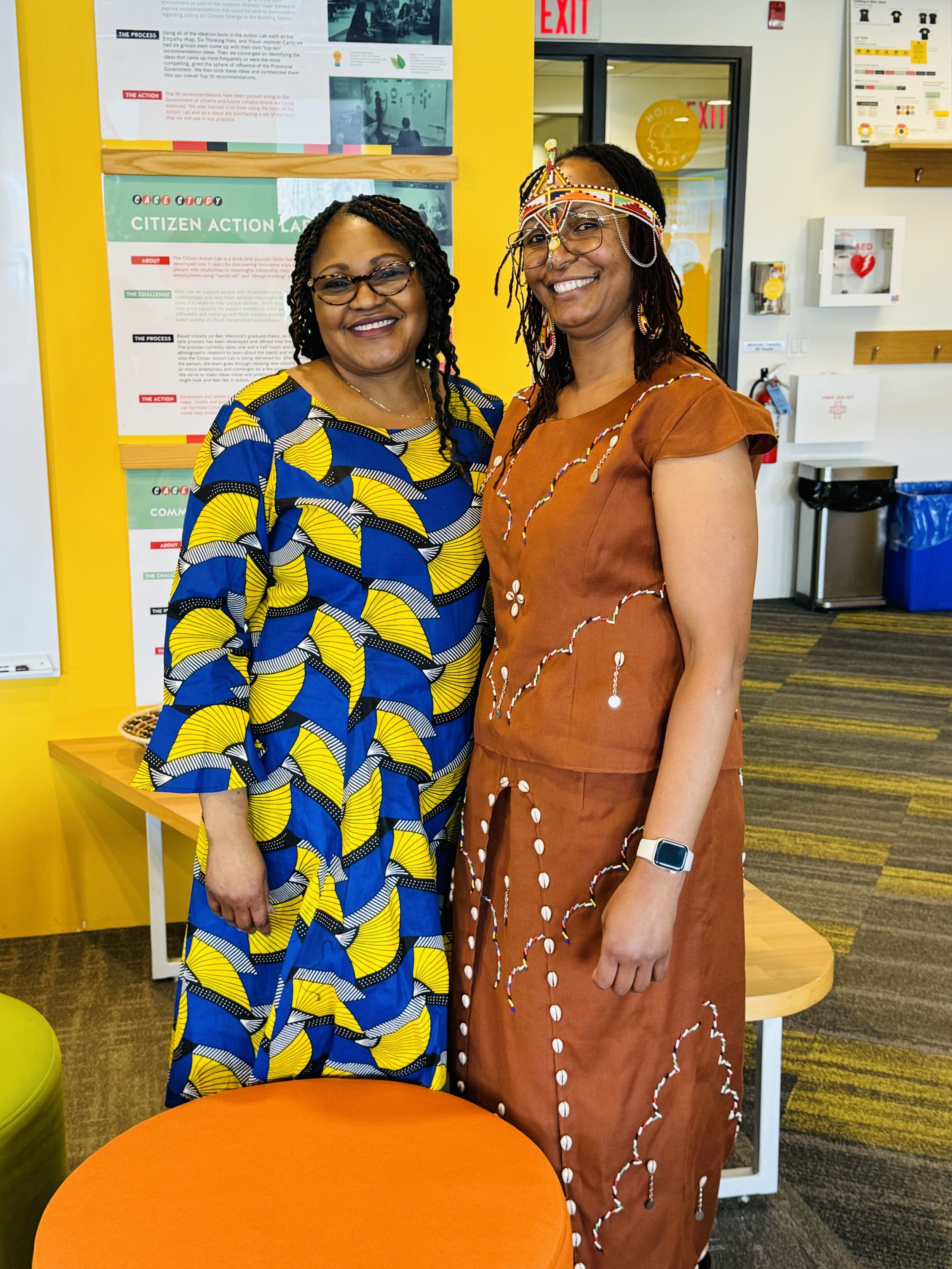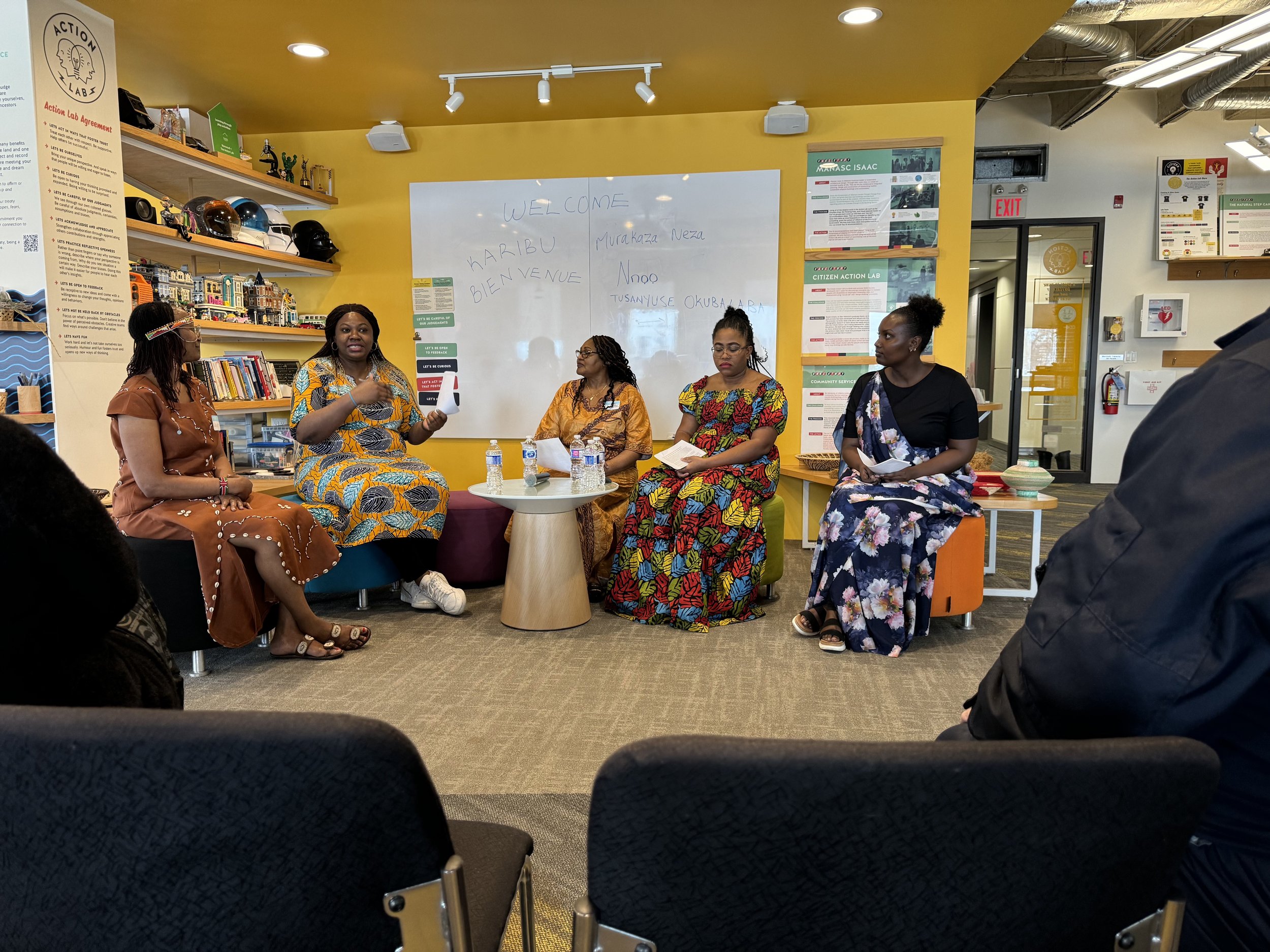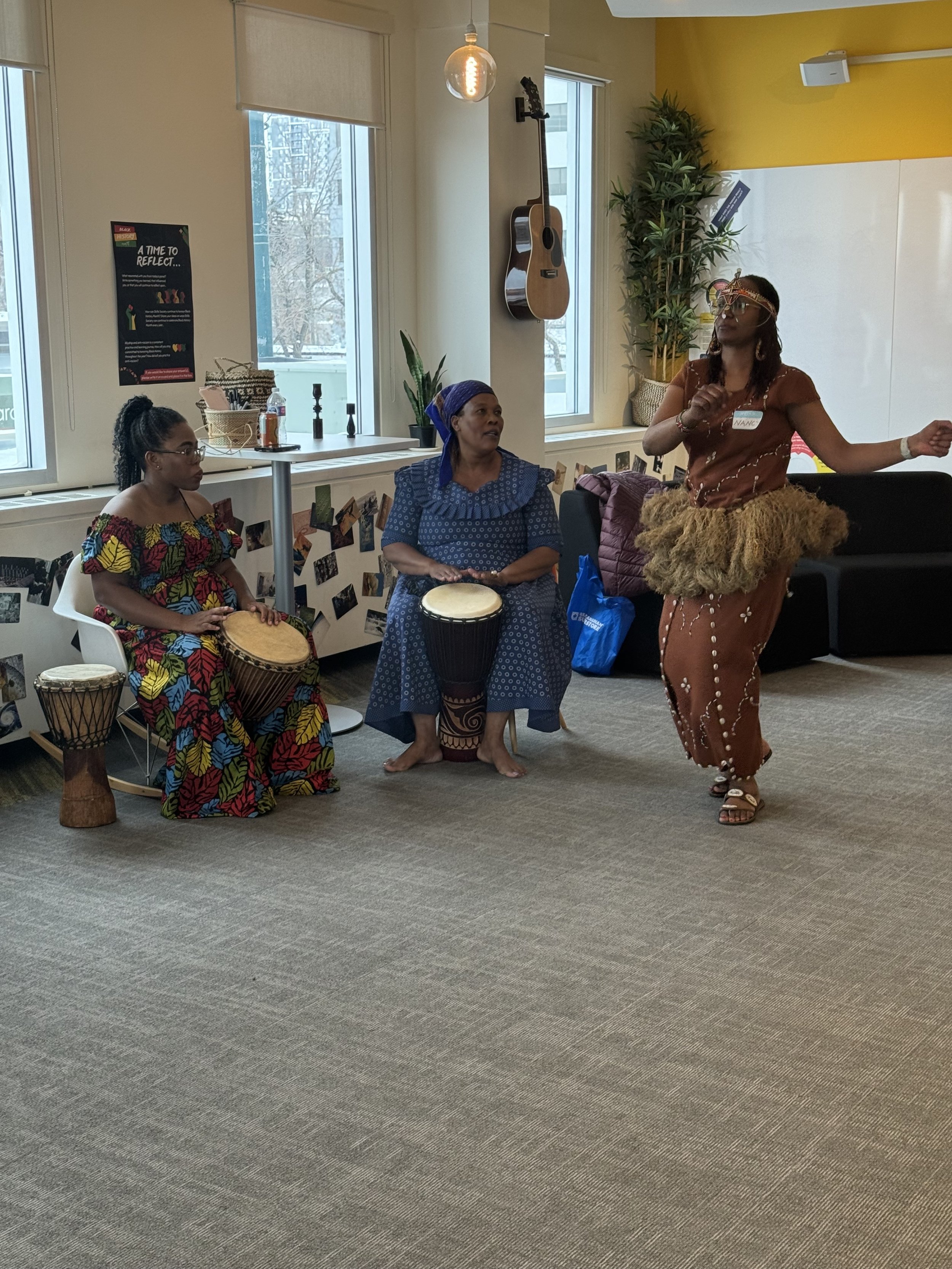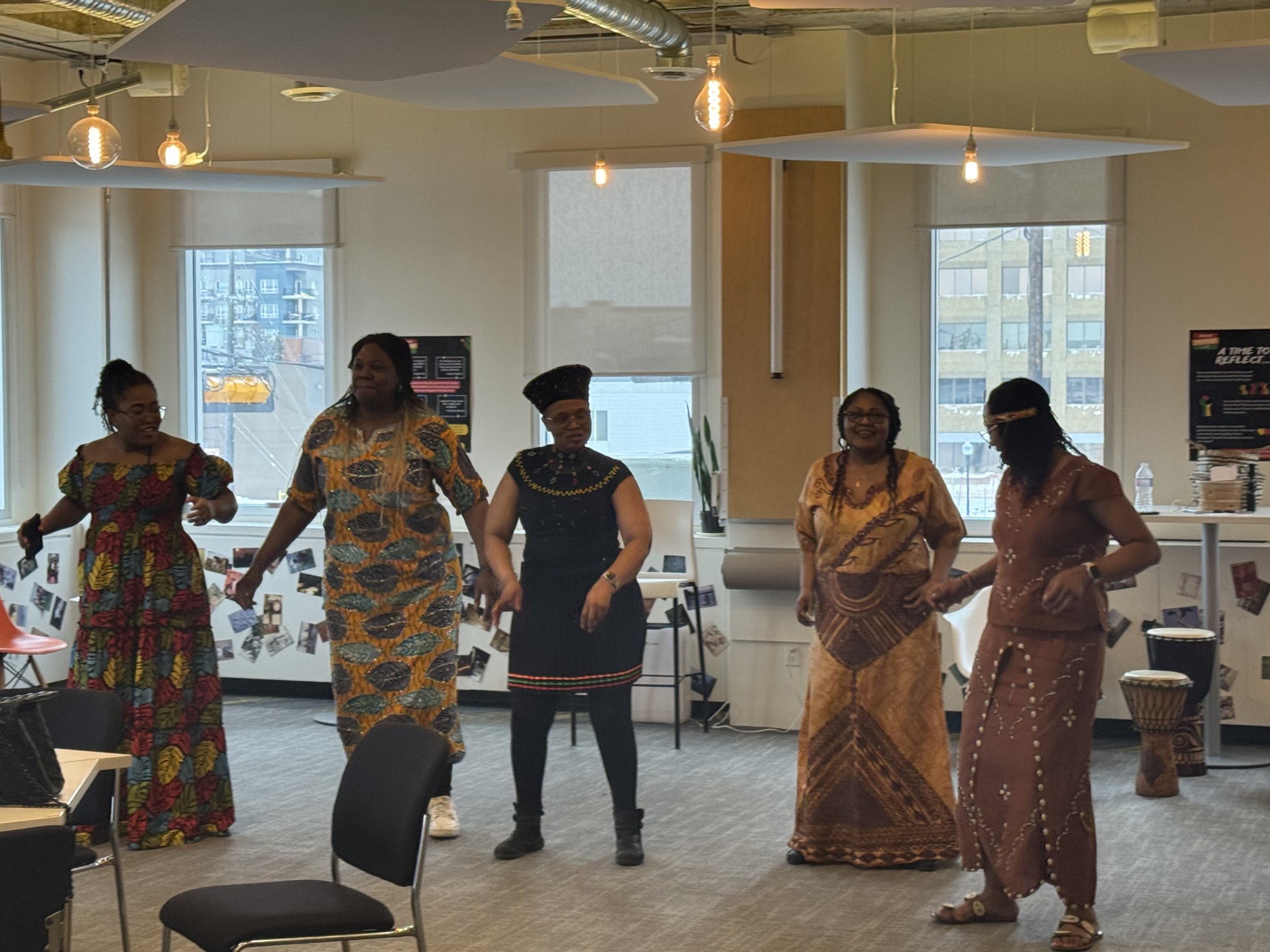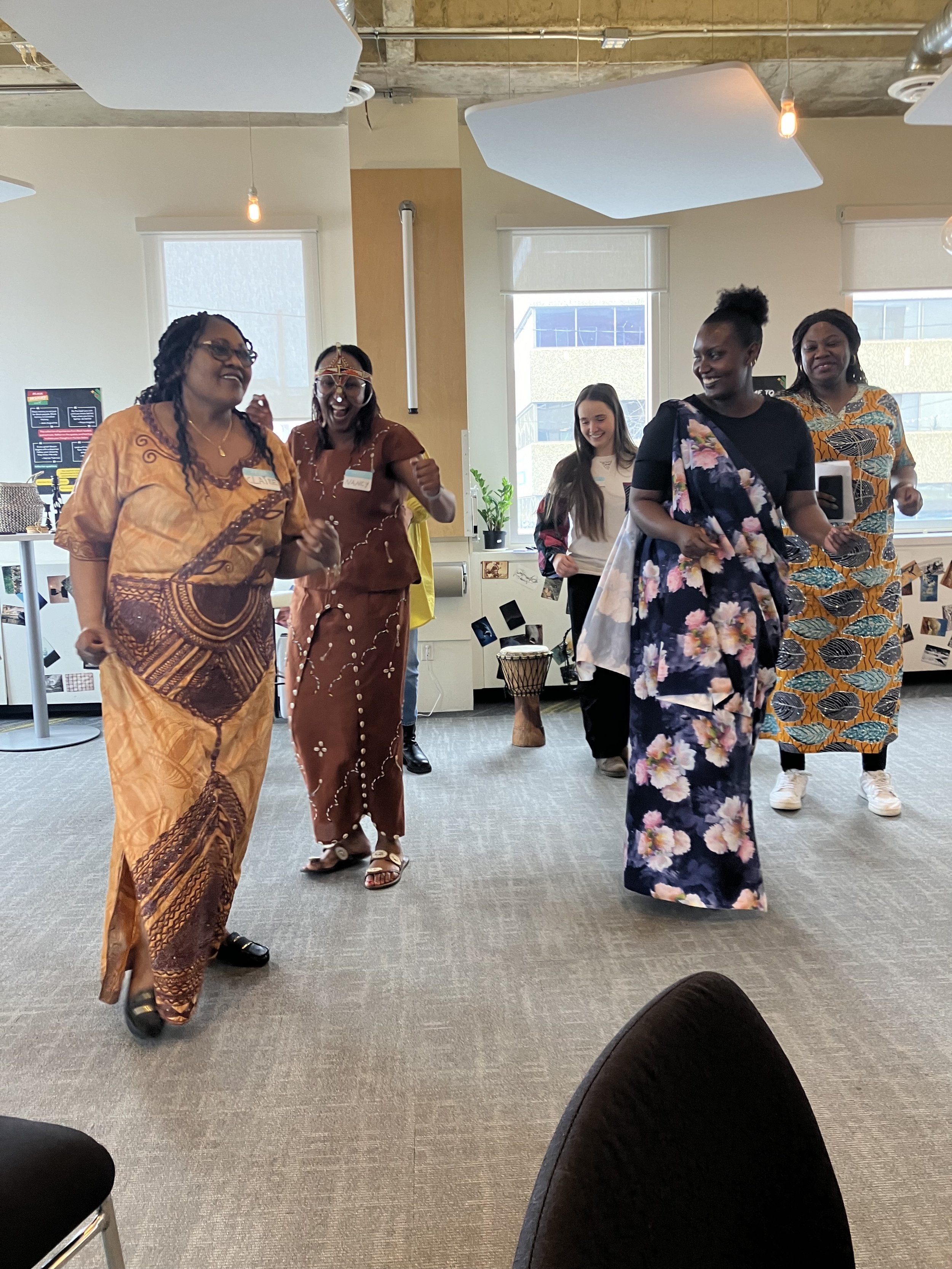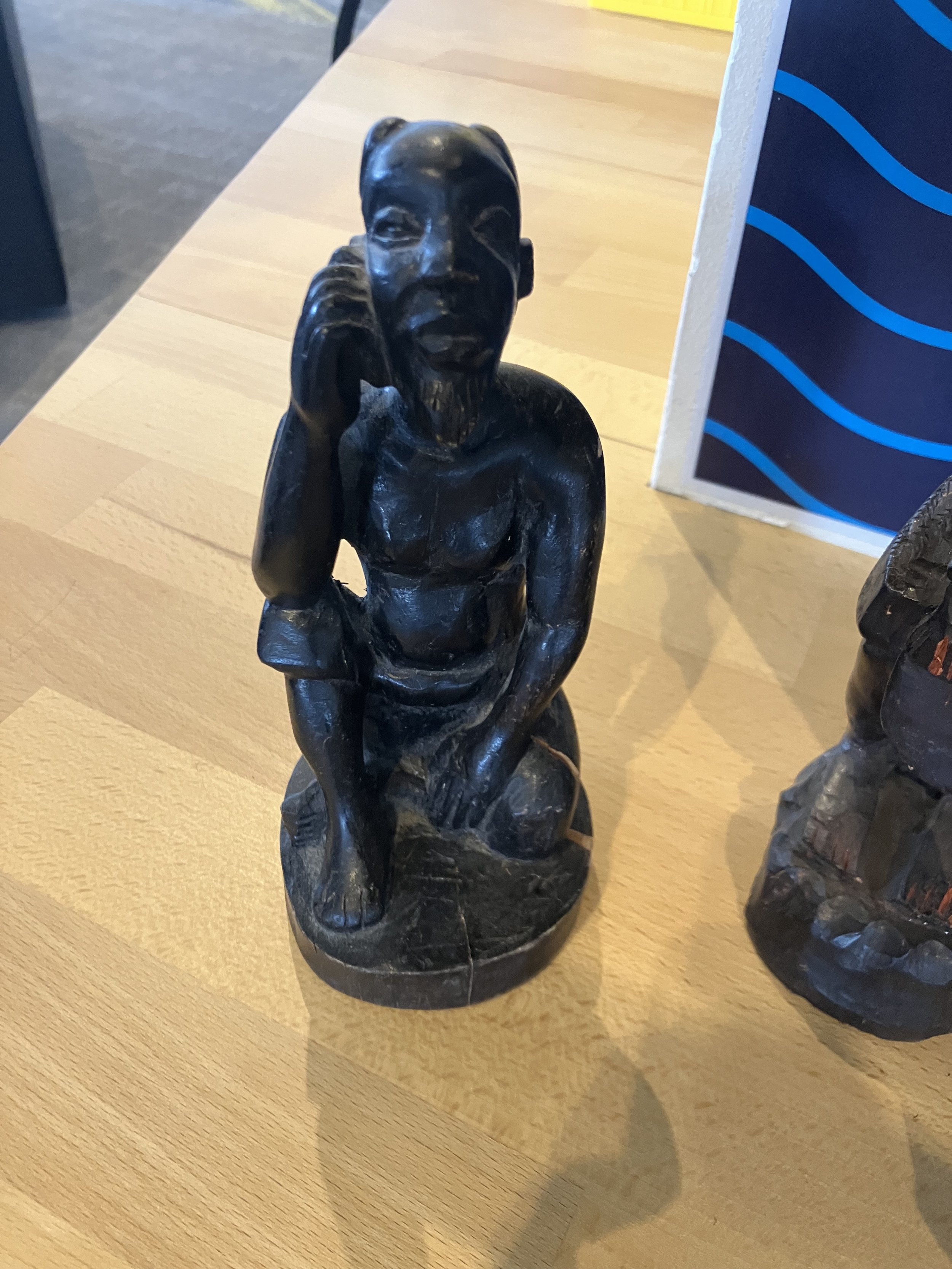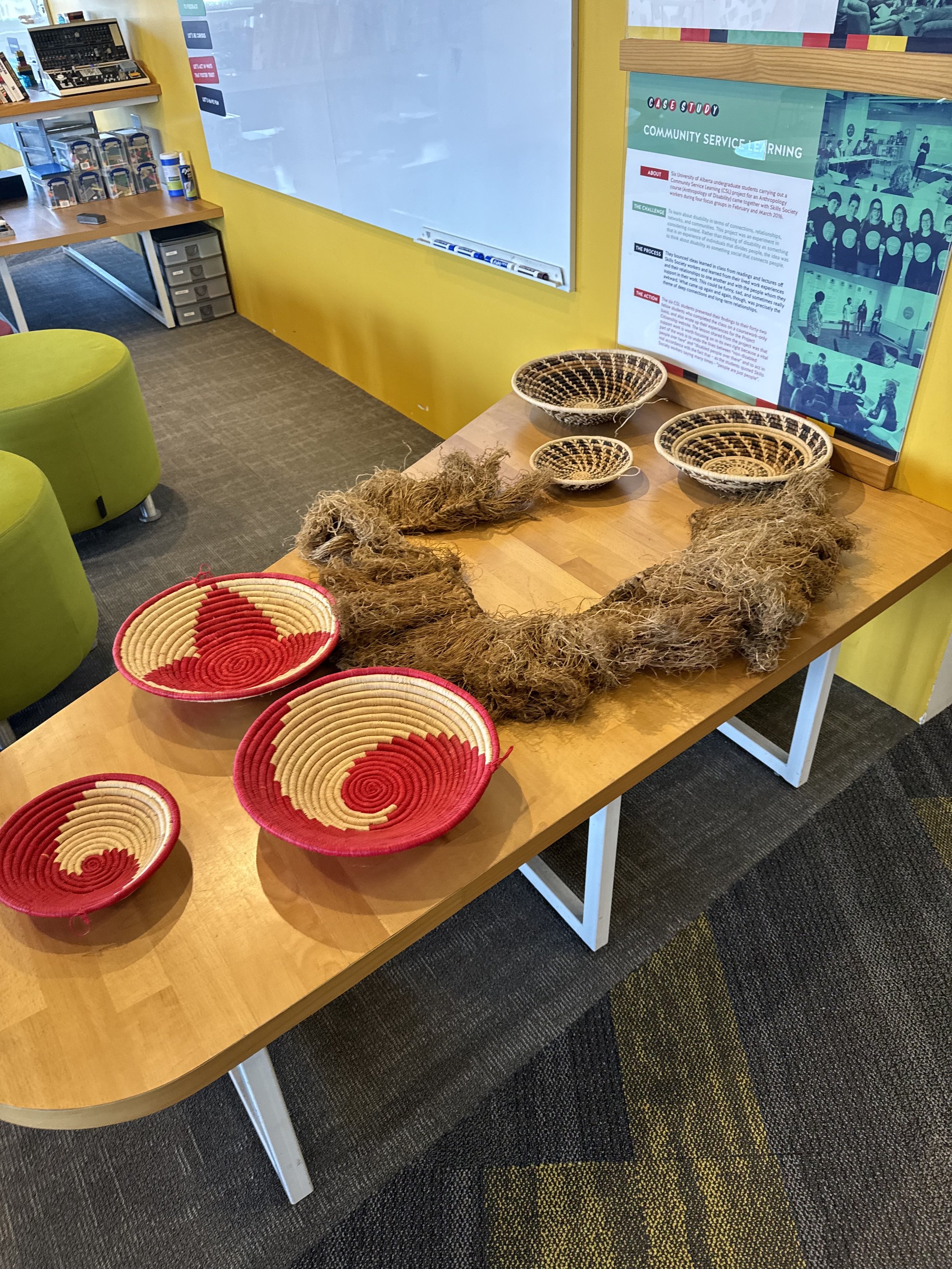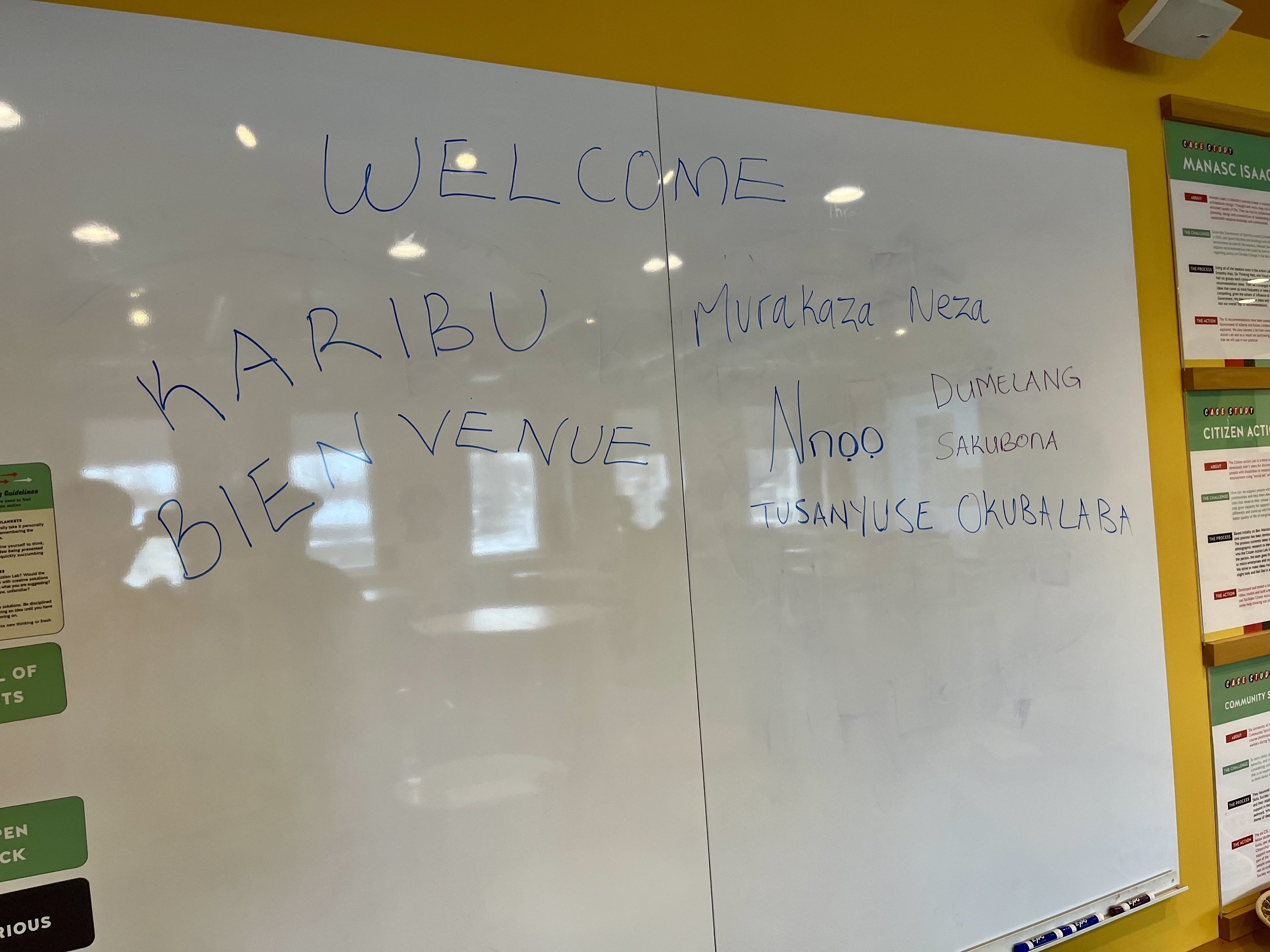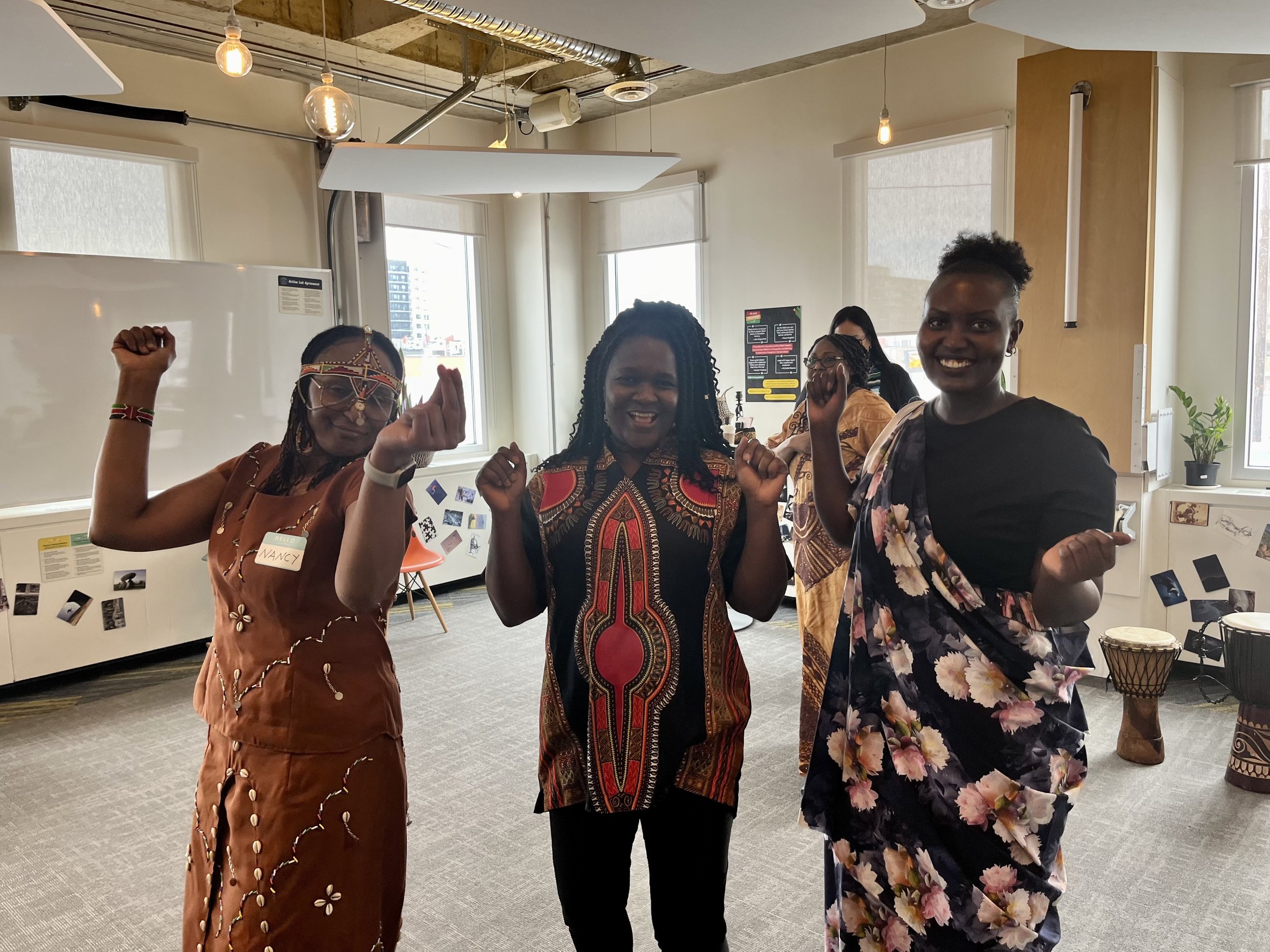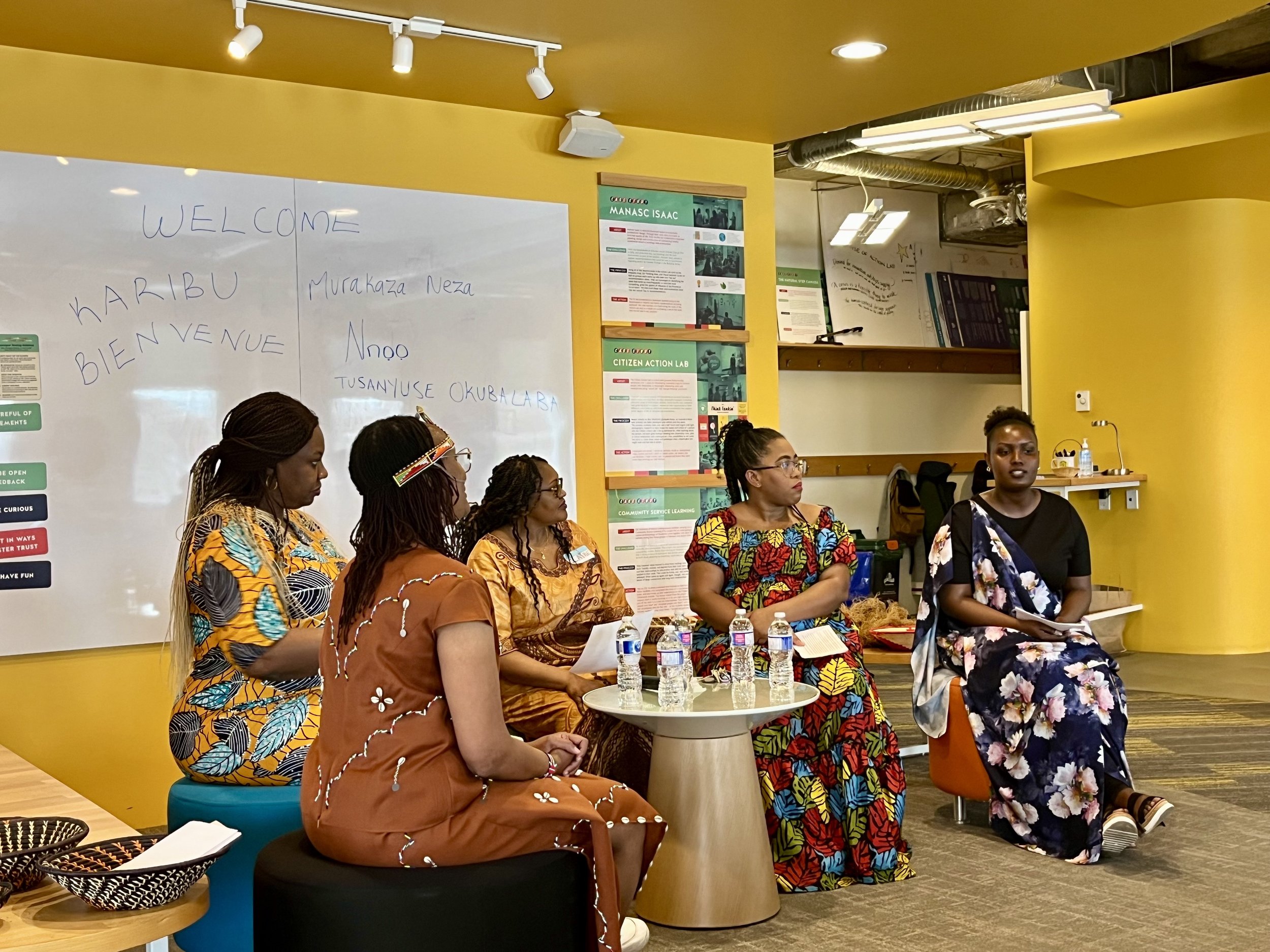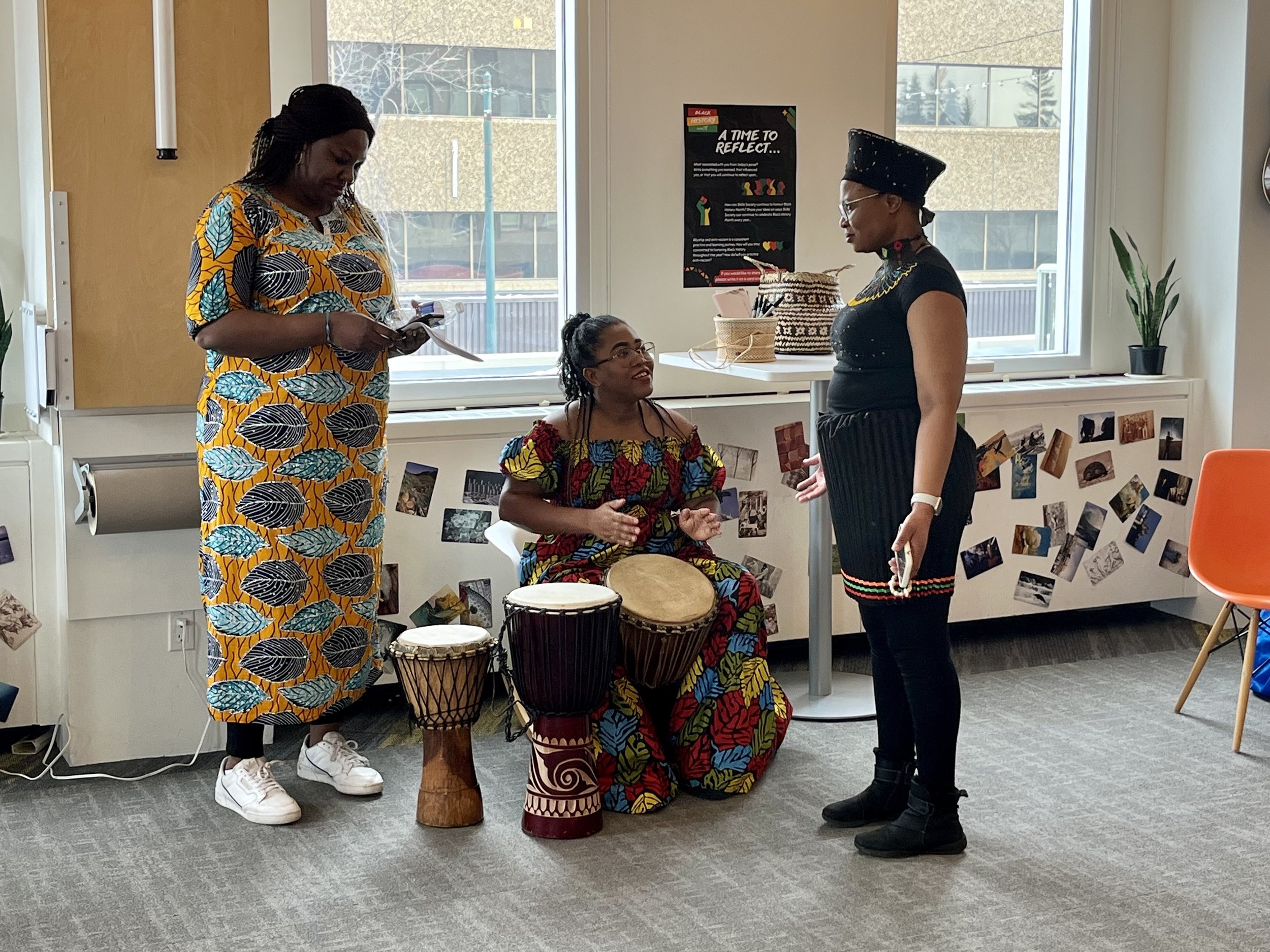Honouring Black History Month 2024
Karibu (welcome in Swahili)
On February 29th, Skills Society’s Equity, Diversity, and Inclusion Committee, in collaboration with Black leaders in our Skills community, hosted an event to honor and celebrate Black History month. The day encompassed a panel discussion with some Black leaders at Skills Society followed by a feast with drumming, singing, and dancing. Several attendees wore their cultural attire and brought musical instruments and other cultural artifacts - contributing to the vibrant decoration of the space! The event created an enriching environment for dialogue, learning, and celebration in honor of the achievements and contributions of Black individuals in our community. We want everyone in our Skills community to be aware of Black History month every year, and think it is important to bring together some learning, stories and actions around diversity, Black culture and history for our Skills community to reflect upon each year. Below is some information that was shared at the event, including a summary of the panel discussion and reflection questions posed to attendees.
About Black History Month
Black History Month is an annual observance celebrated in various countries, dedicated to honoring and highlighting the achievements, contributions, and rich cultural heritage of Black individuals throughout history. Throughout the month of February, people engage in various educational and cultural activities that honor the legacy, and explore the diverse contributions of Black individuals in shaping their communities.
Summary of stories and insights shared during the panel discussion
The purpose of the panel interview is to celebrate Black History Month by highlighting the experiences, achievements, and contributions of Black individuals within our organization and broader community. Through open dialogue and shared stories, we hope to foster appreciation, understanding, and allyship amongst one another.
Panel participants included Skills Society employees Anna Ngoh, Dominique Ingabire, Linda Okafor, and Nancy Kirugi, and the discussion was moderated by Claire Mpinda.
From left to right: Nancy, Linda, Claire, Anna, and Dominique
Panelists first introduced themselves, their cultural roots, and what they are most proud of related to their culture
The panelists shared stories of cultures steeped in community, resilience, and respect:
Dominique is from Rwanda, also referred to as the land of a thousand hills. Dominique shared that last names hold great importance and have meaning, often tied to something spiritual.
“As a country we have tried to move away from tribalism and recognizing ourselves as Rwandans and it’s been really cool to see a country come together. Had to work on reconciling, rebuilding and coming together as a country. We really had to build up from the ground. Coming to Canada I realized there were a lot of parallels to Rwanda and colonization. It’s important to not forget about the things that happened, but also to work together forward.” - Dominique
Anna is from Cameroon which she shared is known for its amazing food and mountains and has about 260 national languages and dialects. Anna takes pride in the way her culture cares for and supports mothers after giving birth. Friends, family and community members come together help care for the mother and baby, supporting with food, wellness, and childcare.
Linda is from Nigeria in western Africa belongs to the igbo tribe. The igbo community is known to be go getters - a resilient, hard working community. As a community people tend to help each other and are always there for one another. Apprenticeships are also an important tradition in her culture. Mentors will support mentees for many years to master and learn a trade.
Nancy is from Kenya which has several traditions depending on the ceremony, time of year, and tribes will have their own unique practices and traditions. The language spoken Kenya is Swahili. Nancy takes pride in her culture’s naming ceremony, which is led by a group of women. Children carry names of their family members and in turn will pass on their names to future generations.
“The way you live your life is important, it tells who you are named after. Character is important. Being really conscious about how you are living and interacting with others because it doesn’t end with you.” - Nancy
Panelists then shared what being a good leader means to them
Leadership, as shared by the group, revolves around empathy, resilience, humility, inclusivity, and the ability to inspire and uplift others.
“A good leader is kind” - Anna
“Being a teamplayer. Leading by example” - Linda
“Leading by example and giving room for others to take the lead” - Dominique
“We are all leaders in our own aspects. A leader recognizes that people have diverse perspectives and strengths.” - Nancy
Panelists shared a brief personal reflection on what Black History Month means to them personally
Common themes amongst the group were recognition, appreciation, and education. There was a shared feeling that Black History Month is a time to celebrate achievements, honor the tireless efforts of those that came before, appreciate and value one’s own culture, and importantly, to educate and share these rich histories and cultures with others.
“A month where we are reminded who we are and where we come from. There is beauty and value in our culture. Especially for our children. To come out and celebrate together. It’s important to have opportunities like today. A gift to really show who we are, and teach people about it. We can’t expect people to know if we don’t share.” - Nancy
“At first I thought it was something that was created by and for Americans. I am happy that I have learned it is something for everybody. It’s an opportunity to express ourselves and teach people about where we are coming from” - Anna
“Being in a multicultural community it’s especially important. You need to see people like you, and understand the work that has been done to even be able to enter those rooms, and the work that still needs to be done” - Dominique
“It’s about appreciating each other’s culture and treating each other with respect” - Linda
Thank you’s
We extend our heartfelt thanks to all those who played a part in bringing this event to life, including the panelists, Issac Talomwa for DJing, and the members of our Skills community who participated, brough artifacts to decorate the space, and shared in conversation.
“Black History is everyday - it’s not only in February. Everyday is a day I can share and talk to people about my culture.” - Claire Mpinda


